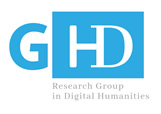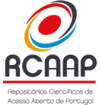The gamification of the learning process: Languages and humanities
DOI:
https://doi.org/10.21814/h2d.2537Keywords:
gamification, apps, language learningAbstract
The gamification of the learning process is engaging users into learning diverse fields from the humanities, to technology or maths. Users feel more engaged when the learning process has been gamified, stimulating them to keep learning and overcome the learning barriers. From the humanities, new apps like Duolingo, Babbel or Tandem have been exploring the language learning process captivating users to learn new languages from English to Chinese. This trend has been followed by apps like Math Learner, focused on learning math, Tynker and Kano focusing on teaching STEM to children, or Datacamp that as a Web App has been the leading platform on Data Science learning for older students and professionals. Virtual reality is also opening a whole new world to the gamification learning experience. We will reflect on the use of gamification in the learning process – mainly language learning, but also STEM and history. We will further address the advantages and disadvantages of hybrid teaching and flipped classroom and how they can enhance a technology-based learning environment.
Downloads
References
Coelho, R. (2015). Gamification e game-basedlearning: uma abordagem lúdica à aprendizagem [Dissertação de mestrado, Universidade do Minho]. http://hdl.handle.net/1822/38406
Domingues, A., Saenz-de-Navarrete, J., de Marcos, L., Fernández-Sanz, L, Pagés, C., & Martínez-Herráiz, J,-J. (2013). Gamifying learning experiences: Practical implications and outcomes.Computer & Education, 63, 380-392.https://doi.org/10.1016/j.compedu.2012.12.020
Fuchs, M., Fizek, S., Ruffino, P., & Schrape, N. (2014). Rethinking Gamification. Meson Press.
McGonigal, J. (2011). Reality Is Broken: Why Games Make Us BetterandHowThey Can ChangetheWorld. Penguin Press.
Pappas, C. (2014). What are the most effective uses of Gamification in Learning? http://elearningindustry.com/how-gamification-reshapes-learning#introduction/
Schunk, D. H. (2012). Learning theories, An Educational Perspective (6th ed.). Pearson.
Lardinois, F. (2017, 16 de agosto). Babbel teams up with Cambridge English to launch new language test. TechCrunch. https://techcrunch.com/2017/08/15/babbel-teams-up-with-cambridge-english-to-launch-new-language-test/
Downloads
Published
How to Cite
Issue
Section
License
Copyright (c) 2020 H2D|Digital Humanities Journal

This work is licensed under a Creative Commons Attribution 4.0 International License.






